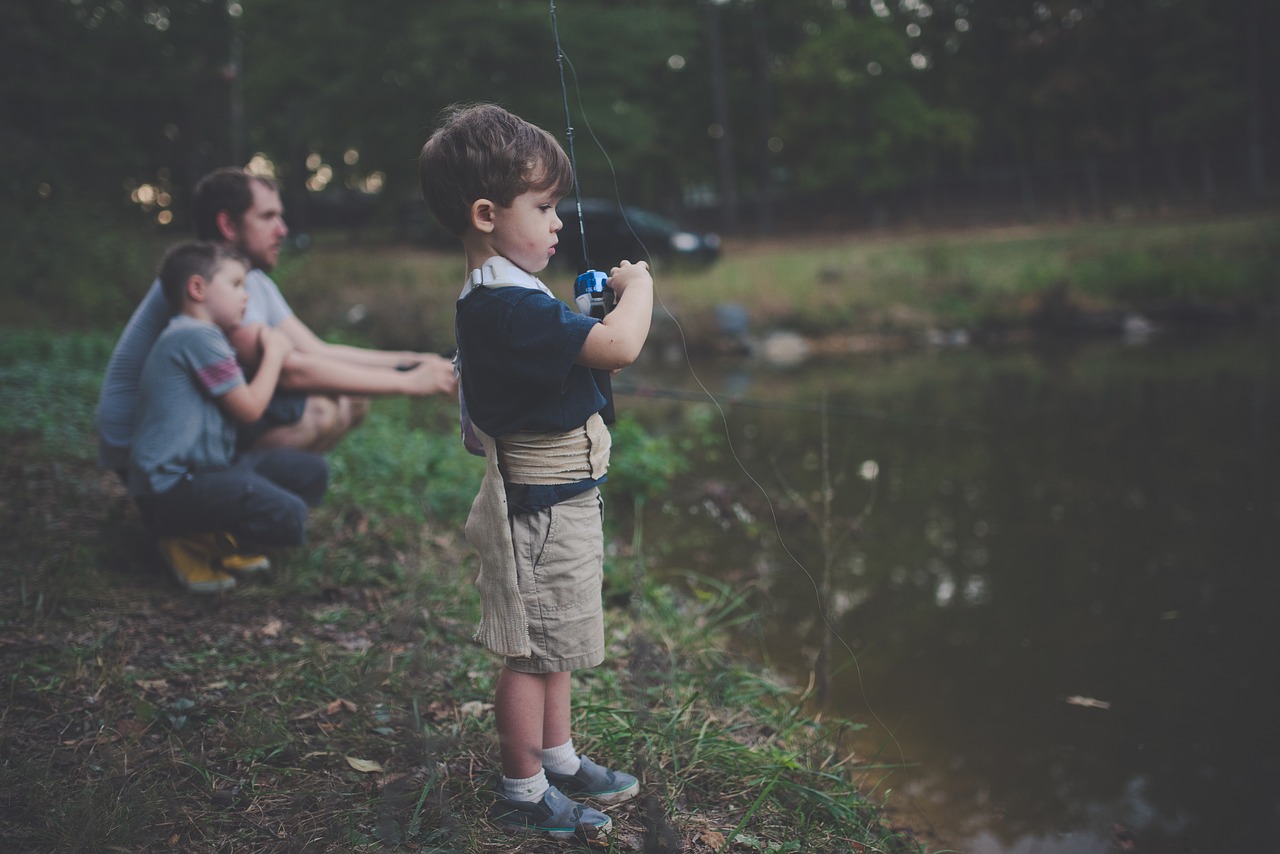
My wife and I recently became first-time parents. Already I think one of my favourite parts of fatherhood is seeing my wife develop into a loving, attentive, self-sacrificing mother—everyday while I’m at work she devotes her life to our precious Amira.
So when I have a day off, I love getting involved. I wear Amira in a baby-wrap, change her nappies, dress her up, take her to appointments, or church, or shopping, and so on. You know, general parenting.
Yet I have noticed that this elicits a bizarre reaction: others seem to marvel at my innocuous actions. People approach and comment: “Wow, out with just daddy,” “You’re doing really well by yourself’,” “You’re such a hands-on dad,” “Giving mum a break?” I think my favourite is, “that’s nice of you to babysit her!”
At the clinic
This attitude was exemplified when I took Amira for her first vaccinations. I had the morning off, so offered to take her and deal with the cacophony of pain-filled wails. At the clinic there was not a single family where both parents were present—it was a large group of mums, doing it alone (sometimes while also wrangling in toddlers).
Yet the workers (and some mothers) focussed their attention on me, again talking about how I was doing well to be there alone, giving my wife a break, and apparently taking an unprecedented interest in the life and health of my progeny.
None of the mothers received similar comments. Nobody was told, “You’re doing really well to look after her alone,” “That’s nice of you to give hubby a break,” or “You’re such a hands-on mum.”
It’s like people implicitly expect mothers to do everything baby related. They have a responsibility towards their child. Fathers conversely, are not obligated to be involved. Anything that they do is a generous, but entirely unnecessary, act of compassion. Conducting the day-to-day roles of parenting is not normative for fathers.
Yet as I read through Scripture, this picture of fatherhood seems entirely foreign. Scripture, in fact, has much to say about how fathers should act. I will address a small sample.
The Greatest Commandment
First, when God gives what becomes known as the greatest commandment to love Him (Deuteronomy chapter 6 verse 5), He follows this with another instruction: “You shall teach [these words] diligently to your children, and shall talk of them when you sit in your house, and when you walk by the way, and when you lie down, and when you rise” (chapter 6 verses 6-7).
The context is that Moses is speaking to the people of ancient Israel, which culturally would likely have included men first and foremost, who then had the responsibility of leading their families. So the fathers were commanded to be actively involved in walking, laying, rising, sitting and talking with their children, and intentionally teaching them the things of the Lord. The implication is that fathers were to be involved in all aspects of the child’s life.
Ephesians 6
Secondly, the Apostle Paul directly commands: “Fathers, do not provoke your children to anger, but bring them up in the discipline and instruction of the Lord” (Ephesians chapter 6, verse 4).
This instruction is given in both the negative and positive sense. Negatively, fathers must not provoke anger through harshness or severity. But I think for many families negativity is provoked due to a father’s absence, when he is ‘too busy’ or just not interested in day-to-day parenting. Paul warns against this.
Positively, Paul tells fathers that they are to be comprehensively involved in raising, educating, nurturing, disciplining and spiritually developing children. In fact, children are a great blessing to fathers (Psalm 127, verses 3-5), which includes a great responsibility.
The Lord has blessed fathers with a wonderful gift, and holds us accountable for what we do with that gift (cf. Matthew chapter 25, verses 14-30).
Theological precedent
Finally, there is a theological precedent pertaining to the importance of fatherhood. God has eternally existed as one nature in three persons: Father, Son and Holy Spirit. These three exist in an eternal, perfect relationship, demonstrating that fatherhood is not incidental to God—it is actually an essential part of His ontology.
This, in turn, gives us a glimpse of what true fatherhood looks like. The Father’s relationship with the Son is one of perfect love, reflecting His love for us (John chapter 17 verse 23). The Father is not uninvolved, or too busy for the Son, nor does He view His relationship with the Son as somebody else’s job. The two are so close, that they are one in essence (John chapter 10 verse 30).
In the same way, human fatherhood becomes part of our ontology, and must not be viewed as secondary to who we really are as men.
Embracing the blessing
So no, I don’t do my wife a favour by changing a few nappies; I don’t go above-and-beyond my real role by generously helping raise my daughter; and I certainly do not baby-sit my own child. I am not a hands-on dad. I am simply a dad.
So men, parent your kids. It is not a distraction from your true calling as a man, nor is it somebody else’s job.
Embrace the wonderful blessing and responsibility that God has given you by modelling the Father’s love and being involved in every possible aspect. Follow His example and command, and show your children what a true man of God looks like.

Haydn Lea is an Associate Pastor in Queensland, and is currently studying his Master of Arts (Theology). He has been a member of the Royal Australian Air Force since 2007, and is now training to be an Air Force Chaplain. He is married to Shamsa Lea, and loves distance running and studying Theology. Despite this rant, he still politely smiles and thanks anybody who calls him a hands-on dad.
Haydn Lea’s previous articles may be viewed at http://www.pressserviceinternational.org/haydn-lea.html

Haydn Lea is an Ordained Minister, and is currently serving as an Air Force Chaplain in Adelaide. He is married to Shamsa Lea, is the father of Amira, and loves running, boxing and studying history and theology. Haydn describes himself as a five-point Calvinist, but he recognises that many faithful Christians disagree. Thankfully he isn’t a cage-stage Calvinist about it all.